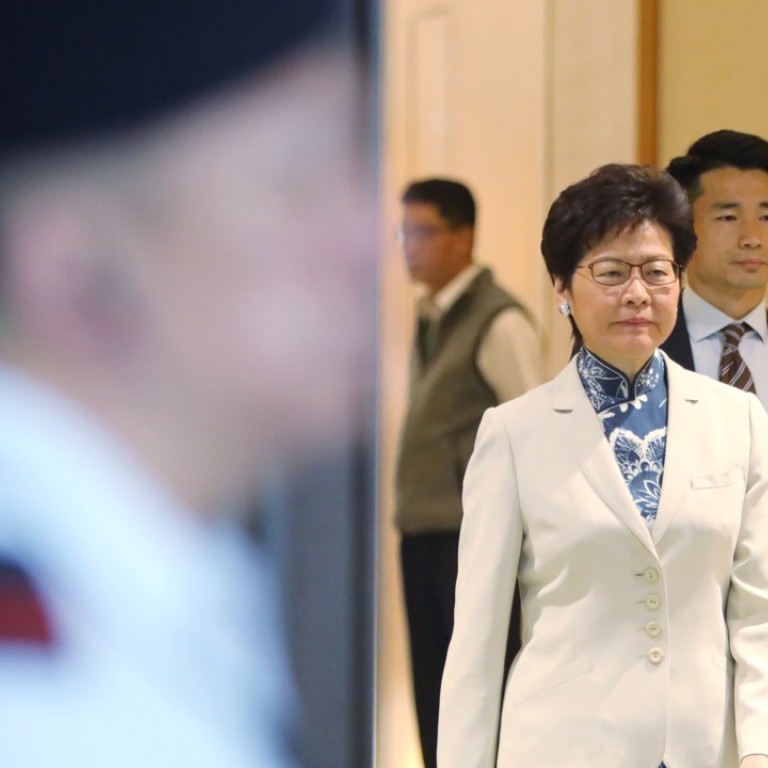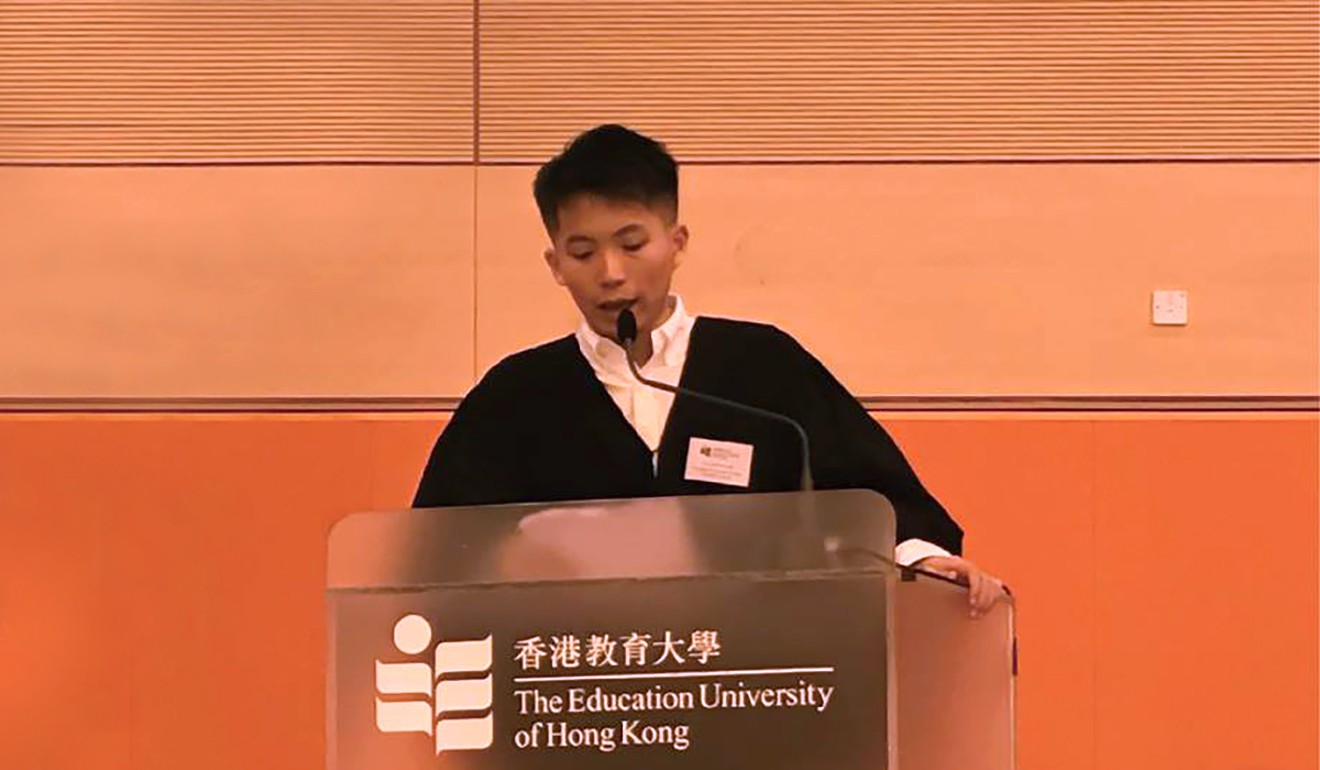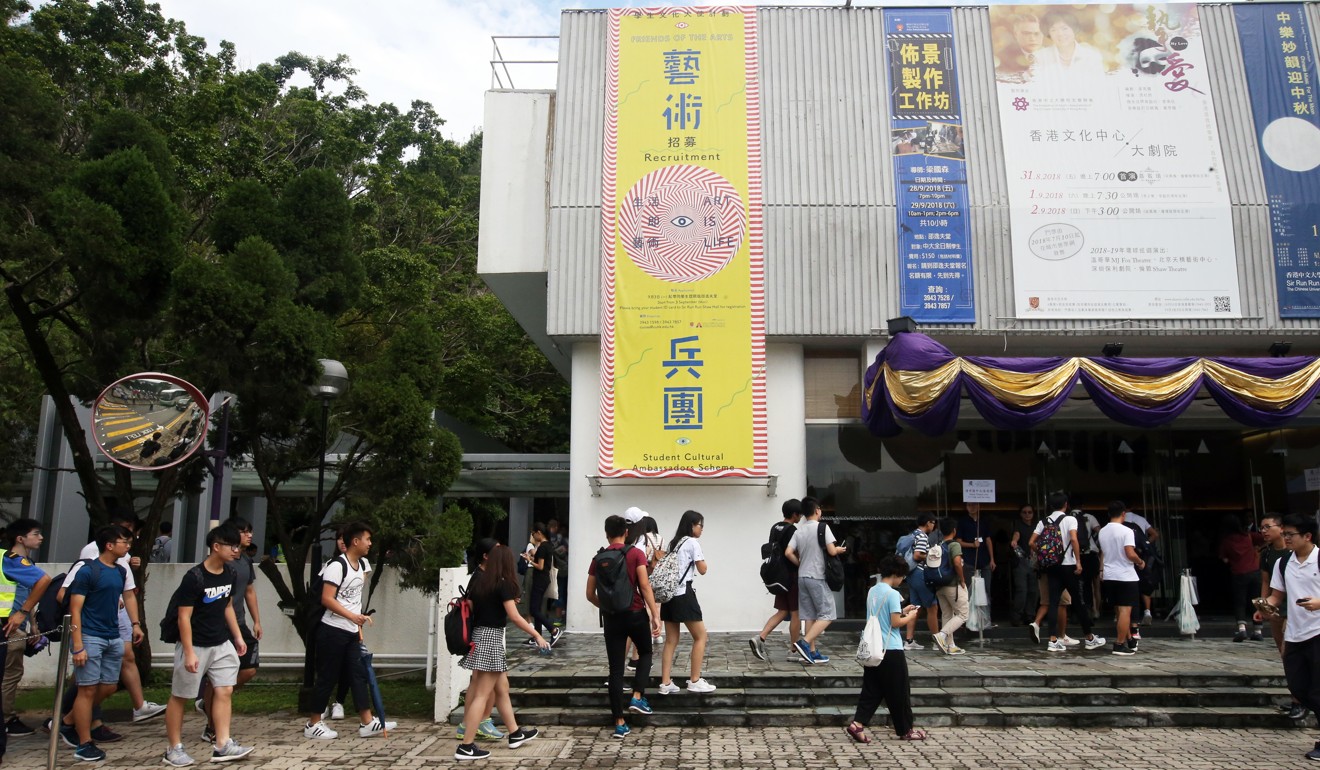
Calls for independence leave Hong Kong’s leader fighting fires behind the scenes as Beijing’s patience wears thin
City’s chief executive was quick to condemn student leaders for remarks made at university events, and need to keep pro-establishment bloc happy likely prompted her comments
Chief Executive Carrie Lam Cheng Yuet-ngor’s emotional condemnation of student leaders who called for Hong Kong independence last week was more than the exasperated remarks of a leader growing weary of the debate.
Rather, in dismissing separatist ideas as “absurd”, she could be seen as taking pre-emptive steps to ease any pressure from Beijing for the early introduction of national security legislation in Hong Kong.
Student leaders have certainly raised the stakes.
In the past two weeks, Cheung Yam at Education University, and Au Cheuk-hei at Chinese University, made statements designed to rile the establishment.
Cheung, the president of Education University’s student union, used an inauguration ceremony to air his controversial views. “Independence is the only way to build a place truly based on the interests of Hongkongers,” he declared.

It marked the first time that a student leader at a local university used an official ceremony on campus to call for Hong Kong’s separation from China.
And Au of Chinese University decried the fact that some students were facing “school disciplinary action for participating in student movements and fights on campuses for values they believe in”.
“Youths have been threatened with years of jail time for taking to the streets in the name of justice, and fighting for democracy and independence for [a Hong Kong] ‘ethnic group’,” he said, referring to Hongkongers as being different from mainland Chinese.
British government sounds warning on freedom of speech in Hong Kong
A person familiar with the Hong Kong administration’s position said Lam had made those remarks to show Beijing she was taking the issue seriously, and to reassure the central government it could handle the situation. Another person familiar with the matter said Lam was indirectly telling Beijing her administration would spare no effort in dealing with any threat to the country’s sovereignty.
“Lam wants to demonstrate to Beijing that she is taking the issue seriously and is capable of handling it properly, so there is no need to rush through the national security legislation,” said Wong Kwok-kin, a lawmaker for the pro-establishment Federation of Trade Unions.

Beijing has already signalled its impatience with Hong Kong for not making sufficient progress in fulfilling its obligation under the Basic Law to enact national security legislation.
Zhang Xiaoming, director of the State Council’s Hong Kong and Macau Affairs Office, last month said
The students’ calls for independence have put the Hong Kong government in a very difficult position
Lam has remained non-committal on setting a timetable for reintroducing the controversial legislation, after failed attempts in 2003 and 2014, saying only that “a favourable atmosphere” would be necessary first.
A Hong Kong delegate to the Chinese People’s Political Consultative Conference, who declined to be named, said Lam was trying to ease pressure from Beijing and the pro-establishment camp to get moving on the legislation.
“The students’ calls for independence have put the Hong Kong government in a very difficult position,” the delegate said.
A mainland source familiar with the central government’s position on Hong Kong affairs said student leaders’ advocacy for independence reflected the need for the legislation.
But, the source added, it was recognised in Beijing that calls for independence from a few student leaders did not represent the mainstream view of students in Hong Kong.
“Although Hong Kong is duty bound to enact national security legislation, there is no need to link these individual cases to it,” the source said, also noting that top Hong Kong officials had condemned those student leaders in a timely manner.

